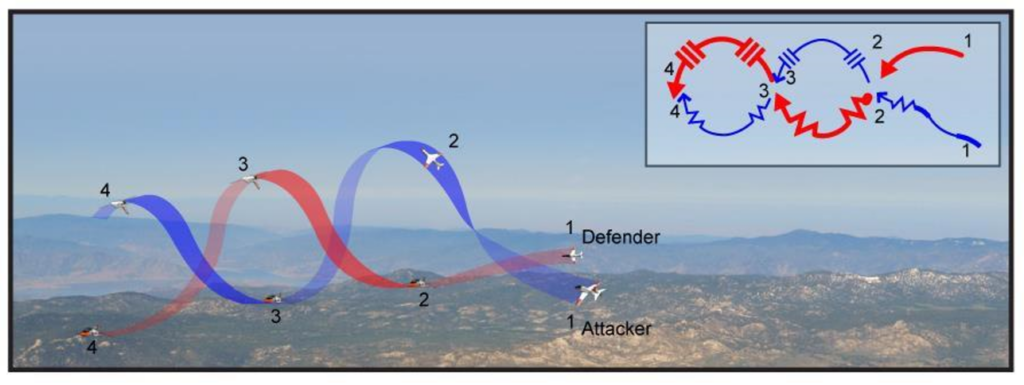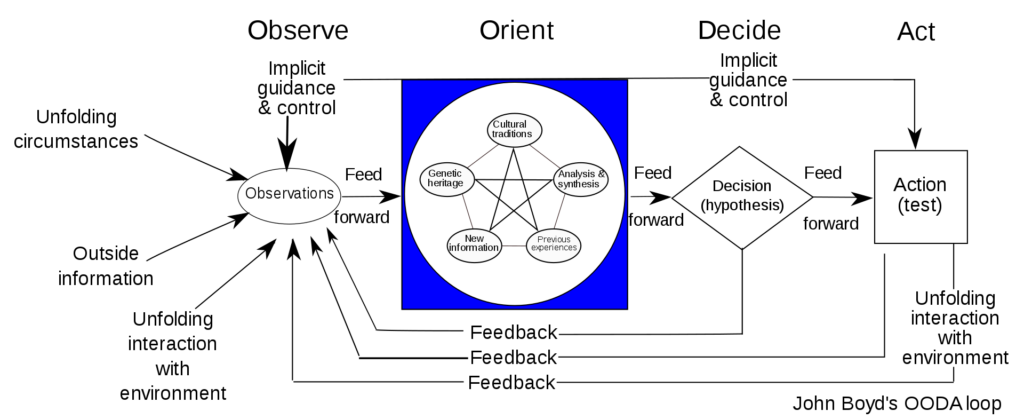I’m going to put it bluntly: everything is a mess. In the last two weeks, 10 million people applied for unemployment, the Dow is 8,000 points lower than it’s high a month ago, and businesses large and small are struggling to stay afloat. The virus and the resulting response have turned the world upside down.
How Air Combat Maneuvering (ACM) Applies To Today’s Crisis
The Chief of Naval Air Training defines ACM as:
“……a three-dimensional environment through which aircraft will maneuver in an infinite number of planes, ranging from the pure vertical, through the oblique, to the pure horizontal. The limitations stem from a combination of the effects of gravity, energy state and airspeed, aircraft limitations, and the individual situation. When combined, these factors form a “snapshot in time” during an engagement.” – CNATRA P-826 (06 – 18) https://www.cnatra.navy.mil/.

A fighter pilot must understand the limitations of his or her aircraft and the adversaries, evaluate the situation, decide on what to do next, execute, and then start all over again in fractions of a second. In short, ACM can be a confusing, unforgiving, and a mentally and physically exhausting environment. Freezing up and doing nothing is almost always worse than doing something.
Survive The Dog Fight
What we are now experiencing is a lot like ACM; the situation changes everyday, the enemy has an overwhelming vote, and “the fog of war” makes every decision uncertain. Individuals, leaders, and companies are scrambling to react, and nothing is clear. However, all is not lost. There are ways leaders should respond and how companies can survive the dog fight.

OODA Loop
In the 1950’s, Colonel John Boyd developed the OODA loop as a mental process by which a fighter pilot reacts. If a pilot’s decision-making process was faster than their opponents in ACM, the pilot with the faster OODA loop would often win. While there is more that goes into the OODA loop process, I’m going to simplify the OODA loop to an ACM environment and to what a leader needs to do right now.

Observe Orient Decide Act
Observe what is currently going on. This is not a long range “snapshot,” but a quick understanding of what is happening right now. All leaders should take a quick look at the barriers they are facing and the opportunities available to make something positive happen. Avoid “analysis by paralysis.” Shorten your horizon to two weeks or less and then quickly gather information and input.
Orient your team by providing clarity to the situation and what is your “leader’s intent.” COL. Boyd expresses orientation as the input of five influences: Cultural Traditions, Genetic Heritage, etc… However, when you’re pulling 7-8 +Gz, you frankly don’t have the time. In today’s environment, leaders don’t either. Thus, it is paramount that you clear the fog for your team by focusing the team on the immediate situation, the possibilities, and your intent.
Decide on a direction and specific actions that can be completed rapidly. Agile planning or SCRUM would define these as “Sprints.” The leader must decide on a specific direction and actions that their team can accomplish in one to two weeks. This current situation is too volatile, uncertain, complex, and ambiguous (VUCA) to plan further out.
Act now and get it done. I flew fighter aircraft for 21 years, graduated Top Gun, and was an instructor for 15 years. The worst mistake I ever made, and my students ever made in an ACM environment was to freeze. Do not waiver. Make something happen. Execute now. As General Patton said, “A good plan violently executed now is better than a perfect plan executed next week.” If you do not act, then the opportunity may pass you by or your chance to mitigate the bad situation may become to great to overcome.

You will Make Mistakes
Some final thoughts. You will make mistakes. You will probably make the wrong call. You will turn left when you should have turned right. Don’t worry about it. The impact of these choices will be mitigated because your timeline is short. If you are debriefing https://strategicleadershipconsulting.com/Speaking/#Consulting regularly and flowing back through the OODA loop cycle, then you will be able to pivot and adjust.
Survive And Succeed
As I mentioned at the beginning, everything is a mess. However, those leaders, teams, and companies that react faster and drive the situation rather than moving with the tide will survive and succeed. This will end. The big question is where you will be when it does.
